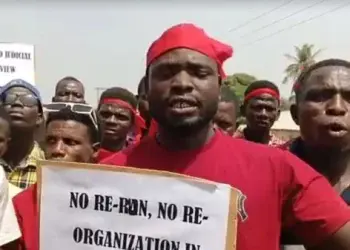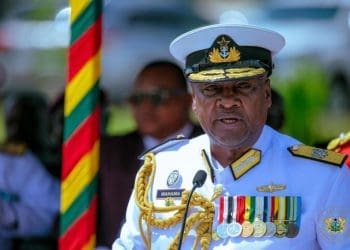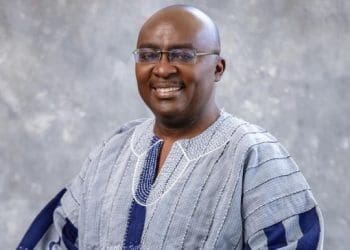The OneGhana Movement has renewed calls for the urgent establishment of an Independent Security Services Complaints Commission, following violent attacks during the Ablekuma North parliamentary rerun on July 11, 2025.
In a strongly worded statement signed by Senyo Hosi, Director of the civic advocacy group, OneGhana, expressed outrage over the conduct of security personnel during the rerun and warned that partisan manipulation of Ghana’s law enforcement agencies continues to erode public confidence and endanger the country’s democratic future.
“Ghana’s democracy will only be safe when every security agency operates under lawful, independent, and accountable authority, free from partisan capture,” Hosi stated.
While acknowledging the government’s pledge to set up an Independent Police Complaints Commission within six months, OneGhana insists the Commission must go further, covering not just the police but also the military and intelligence agencies, and be empowered to function without interference from political actors.
Call for prosecution under the Vigilantism Act
OneGhana is demanding the immediate arrest, prosecution, and severe punishment of all individuals responsible for the attacks at Ablekuma North.
Describing the violence as “planned and orchestrated,” the movement stressed that the culprits — captured on video and already identified by citizens — must face charges under the Vigilantism and Related Offences Act, 2019, which prescribes custodial sentences of 15 to 25 years.
“This is not the time for weak warnings or selective enforcement. The rule of law must apply fully and without fear or favour,” Hosi declared.
The group said those seen in the viral videos committing assault, battery, threats of death, and destruction of property must be brought to justice, not only to serve as a deterrent but to affirm Ghana’s commitment to the rule of law.
Political violence now a pattern
OneGhana condemned what it called a disturbing normalisation of election-related violence, citing incidents during the 2020, 2024, and now 2025 electoral cycles.
According to Hosi, these are not random outbursts of chaos but are the result of “coordinated actions by political vigilante groups and foot soldiers,” often with the silent approval—or direct coordination—of party leadership.
“The goal is simple: secure electoral victory by any means necessary. And as the 2025 Ablekuma North rerun shows, Ghana is no closer to breaking this cycle. Instead, the country stands at the edge of a political precipice,” he warned.
Police complicity undermines the rule of law
Even more troubling, the group pointed to disturbing reports and footage showing Ghana Police Service officers either standing by or participating in the violence, including the slapping of a journalist in broad daylight and pepper spraying of another.
“This is not an isolated failure. It reflects a deep, institutional erosion of credibility,” Hosi said, adding that the police, in their current structure, are neither empowered nor independent.
OneGhana argued that until the leadership of the police service is freed from political subservience, its effectiveness will remain compromised.
Four demands for accountability and reform
The OneGhana Movement issued four key demands to restore faith in the democratic process and the country’s security services:
An immediate and transparent investigation into the conduct of officers deployed to Ablekuma North.
Public accountability for all individuals, uniformed or otherwise, who instigated or committed acts of violence.
A comprehensive update on the status of the 2019 Ayawaso West Wuogon Commission recommendations, which remain largely unimplemented.
The expedited establishment of the Independent Police Complaints Commission, ensuring it begins operations within six months and has full authority over all security services.
Call to civil society and political leadership
OneGhana urged the media, civil society organisations, and the general public to remain vigilant and committed to demanding accountability and transparency from all arms of government.
“Ghana must not wait for another tragedy before acting. The silence of institutions in the face of injustice is complicity,” the statement concluded.
The group also challenged political leaders across party lines to rise above partisanship and support systemic reforms that would strengthen the country’s democratic foundations rather than subvert them.












